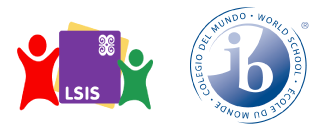Abstract: This document is intended to effectively demonstrate Learning Skills International School’s philosophy of language teaching and learning. This policy should be read in conjunction with other key policies, procedures and handbooks. At Learning Skills International School, we are a community of learners whose intentions are to produce lifelong learners who are globally competent and globally minded. It is a place where the joy of learning is practiced and celebrated daily. Our teachers and students strive to be well versed in the tenets of 21st Century education such as creativity, collaboration, communication and critical thinking.

Language and Learning Philosophy
At Learning Skills International School, language is at the heart of all learning and it is intricately woven into the fabric of the school. As an international community, we create and nurture a welcoming environment for all students from diverse linguistic and cultural backgrounds. We place value on students who are able to communicate effectively in two or more languages as this forms an important part of our students’ overall cognitive development. All teachers and students are encouraged to assume the responsibility to be language learners.
Language teaching at LSIS is the responsibility of all teachers and is delivered through a holistic approach which transcends disciplines. Teachers work with students to develop age-appropriate competency in speaking and listening skills, reading and writing, presentation and communication.
Language of Instruction and Additional Language Instruction
English is the language of instruction at LSIS. Learning more than one language enriches personal growth and facilitates international understanding. LSIS offers French for all students in our learning community.
Mother Tongue
LSIS values the development of Mother Tongue language and believes it is crucial for maintaining cultural identity and processing information and concepts. It enables young people to participate more effectively in the global community.
- Families are encouraged to use their mother tongue to support their children’s development by speaking, reading and writing in their mother tongue.
- The school library contains a number of books in Ghanaian languages.
Language of Instruction (English)
English is the primary language of instruction and communication at LSIS as it is also the official language spoken in Ghana and we recognise that English is also an international language. Where a student is unable to communicate in English, extra tuition will be provided.
In addition to English, all students are taught a second language, French. This is a mandatory requirement for every student who is admitted into the school. It is expected that as a Junior and Secondary School is added in a couple or so years other foreign languages such as Spanish and Chinese will be added.
As LSIS follows the UK National Curriculum, students study History and Geography as required by the UK curriculum. The study of these subjects exposes the students to the culture of the United Kingdom and other English-speaking countries through a variety of literary and linguistic activities. Children have the right for their language and cultural background to be acknowledged and respected. The languages that children learn and use help them to develop their own personal identities. It contributes to an understanding of culture and facilitates international-mindedness. Learning more than one language enriches personal growth and facilitates international understanding.
Local Language
LSIS values the development of the local language and believes it is crucial for maintaining cultural identity and processing information and concepts. Ga is taught from Primary one as in other Ghanaian schools
- Families are encouraged to use their local language to support their children’s development by speaking, reading and writing in their local language.
- The school library contains a number of books in Ghanaian languages.
Assessment and Reporting
In order to provide the quality of language experience we aspire to, it is important that assessment practices play a key role in our planning for teaching and learning. Therefore we ensure that:
- There is regular and prompt feedback on learning.
- Teachers track progress and use a range of assessment methods.
- Assessment informs further teaching and learning in all strands of language.
- Pre-assessment guides learning and quality assessment tasks provide the feedback as to whether learning intention have been achieved.
- There is regular and school wide reporting to parents through Parent Teacher Conferences and written reports.
Policy Review
This policy will be reviewed annually and revised as appropriate.

